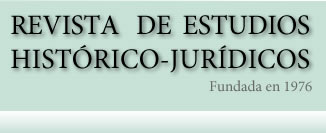The Organising Committee and the Executive Council of the European Society for Comparative Legal History are pleased to call for papers for the upcoming Society’s Seventh Biennial Conference to be held from 21 to 23 June 2023 at the University of Augsburg, Germany.
A conference in 2023 will be a change to our normal timing. We began in Valencia (2010), followed by Amsterdam (2012), Macerata (2014), Gdańsk (2016), Paris (2018), and most recently, after a delay caused by Covid, we enjoyed the event in Lisboa (2022). However, not only does that mean we did not have a conference for four years. Covid has also moved some other large international conferences now to even-numbered years. To avoid collision with these other conferences, the ESCHL conferences would after 2023 continue at two-year intervals moving them to uneven-numbered years. The offer from Augsburg was made some years ago, but kindly deferred and the Executive Council is delighted to be able to take it up now.
For the Augsburg event in 2023, there is no general conference theme. Rather, the organisers hope that the sessions will reflect – in terms of covered topics, time periods, and regions – the full breadth of international research in comparative legal history. The Organising Committee does so in the believe that the Society’s Biennial Conference should foremost be a platform for researchers to present their most recent research in comparative legal. Papers should address and explore doctrinal, theoretical, cultural, or methodological aspects of comparative legal history. Papers should also be comparative, covering at least two legal systems, as well as historical.
To offer a paper, please send an abstract of up to 400 words by 15 November 2022. Papers, and abstracts, should be in English. The abstract should give the title of your paper and your personal data (full name, email address, work affiliation). Please also send a short CV (no more than 4 pages). Everyone, at whatever stage in their research career can offer a paper. The application should be sent to: phillip.hellwege@jura.uni-augsburg.de. Abstracts will be assessed against: (1) the aim to have a diverse conference; (2) the novelty of the work; (3) the evidence of scholarly rigour and promise of a fully researched and referenced paper; (4) in order to allow as many people as possible to speak at the conference, a person may normally offer only one paper.
It is also possible to submit a proposal for a complete panel. Panels normally consist of three papers. A panel proposal should – in addition to the abstracts and CVs of those who wish to present a paper in that panel – include an abstract for the entire panel as well as a CV of the panel organizer.
Applicants will be informed by 15 December 2022 whether their paper has been accepted. The conference programme will be published on 31 December 2022 on the conference website:
https://www.uni-augsburg.de/de/fakultaet/jura/lehrende/hellwege/seventh_esclh_conference_2023/
The conference website will also contain information on the attendance fee for those who are not members of the ESCLH, on transport to and from Augsburg, on accommodation in Augsburg. Finally, the conference website will allow, starting 15 December 2022, registration for the conference.
Finally, the conference will be preceded by an additional PhD-workshop on 21 June 2023. Further information about the workshop will also be published on 15 December 2022.


_page-0001.jpg)
_page-0002.jpg)




